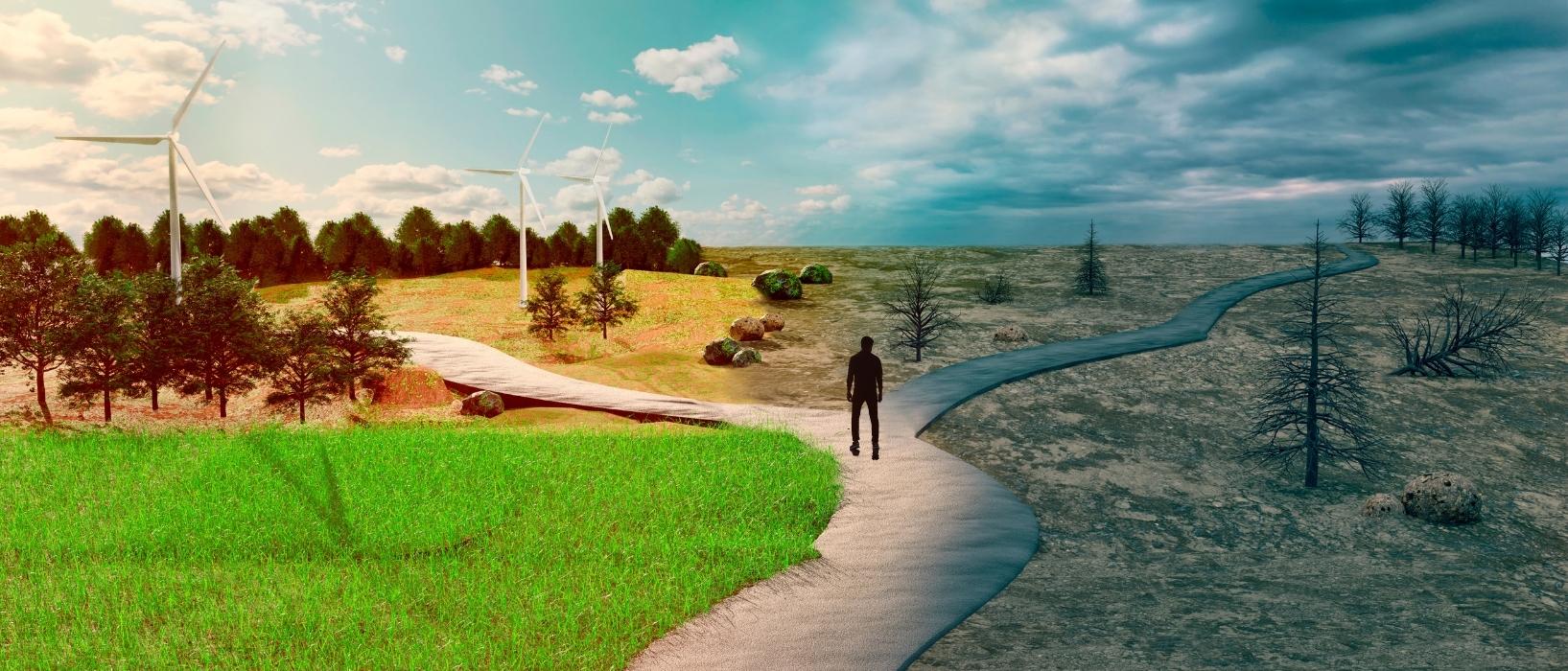The latest United Nations Intergovernmental Panel on Climate Change (IPCC) report on mitigation was released recently.
After a particularly dreary look at how we are currently progressing into the climate crisis in their last report, this new one offers hope with the ways we can stop, or at the very least reduce its effects.
The task the scientists set out seems daunting: The world must slash annual greenhouse gas emissions by almost half in the next eight years, and find a way to zero out carbon pollution by the middle of the century.
But the IPCC also describes hundreds of strategies that could help humanity achieve this goal, and emphasises that if we work together it is possible.
Clean Energy
The most obvious solution is perhaps one of the simplest – stop using fossil fuels, switch to renewable energy.
Thanks to huge advancements in renewable energy technology, generating electricity from solar and wind is actually cheaper than fossil fuels in many places, the IPCC says. Small-scale renewable power sources, such as off-grid solar panels, can even help bring electricity to communities that previously had no energy access.
The report suggests governments use policy measures such as taxes on carbon emissions, financial incentives for installing renewables and renewable portfolio standards to accelerate the transition to clean energy sources.
“Fundamental to all of these changes is that low carbon energy systems will use far less fossil fuel than today,” the authors write.
Make an Impact This Earth Month
Reducing Demand
Transitioning to clean energy will take time. Meanwhile, it’s up to all of us to reduce how much we use.
Better efficiency is one way to do this and, according to the report, one of the quickest and most effective areas we can make progress in is our buildings.
The built environment accounts for about 21% of global emissions if you include those used for electricity and heating. Strategies to solve this are usually quite cheap as well, including better insulation, more efficient heating and cooling systems, and using more sustainable construction materials.
It’s important to note that it’s not just in the hands of governments and large companies to change. The research showed that individuals and households just aren’t motivated to use less energy, thinking they will not be able to make an impact.
However, collectively, the impact we could have is massive.
Travel & Transportation
Everybody knows that flying, driving, and shipping goods across the world is one of the main drivers of climate change and that it is high time for a transportation revolution.
This is already underway, with the report suggesting we ramp up electric vehicles, explore hydrogen and advanced biofuels for aviation, and embrace cultural and behavioural changes.
This includes better public transport links and encouraging the public to take them, as well as designing cities to allow people to walk and cycle more easily.
Technological assistance and smart transportation planning could even allow developing countries to “leapfrog” past the need for fossil-fuel-based transport systems altogether, the report says, with benefits for air quality as well as climate.

Sucking It Up
Reducing emissions is critical, but there are ways we can reverse some of the damage we’ve already done: removing carbon from our atmosphere.
There are tonnes of ways this can be done, but the report cites protecting and repairing nature as one of the most effective and quickest.
Healthy forests, restored wetlands and undisturbed prairies can pull billions of tonnes of carbon out of the atmosphere each year, the IPCC says — delivering as much climate benefit as almost 2 million windmills. Ecosystem recovery also protects wildlife, defends against heat and flooding, cleans the air and water, and even improves people’s mental health.
Another method is to improve the way people farm. Adopting more sustainable practices, curbing fertilizer use, and reducing the amount of meat we consume could help turn farmland from a carbon source into a carbon sink.
The report does also mention direct carbon dioxide removal (CDR) using machines, however many of the researchers remain sceptical about it. They warn that many of these are unproven and often suggested by the fossil fuel industry as a way to delay action on climate change.
Investing In The Future
The IPCC’s bottom line is that to effectively confront climate change every country, every economy and every industry needs to change. This, however, needs funding.
It’s well-known that the people who suffer most from climate change are those who contribute least to the problem. They need help, yet the report notes that the West has “systematically shirked” its responsibility when it comes to funding. The authors make clear that this is not due to a global scarcity of funds.
The world must address inequity as it fights climate change, the IPCC says, because it bolsters cooperation. And, if done right, efforts to curb emissions can also improve the well-being of people.
“Reducing greenhouse gas emissions can contribute to ending poverty and hunger,” said environmental sociologist Patricia Romero Lankao, a lead author of the report, “when it’s done with justice and equity approaches in mind.”
Be Part of the Climate Solution
Find out how Play it Green can help you or your business











